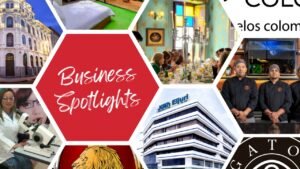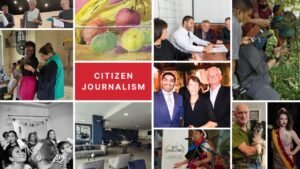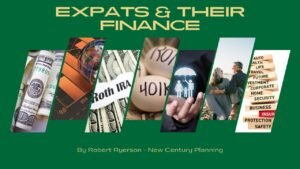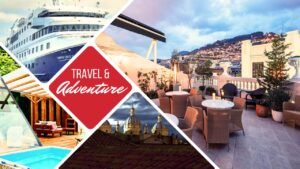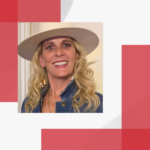CITIZEN JOURNALISM – Amazonia Vanilla Company
-
Loren Hostetter

- April 17, 2024

We are passionate about food and growing it sustainably with small-scale producers. We emphasize growing vanilla in a natural setting to promote natural infusions of the aromas of the Amazon. We join communities that have international experience with the traditions and cultures of indigenous people and their secrets of forest herbs, spices and medicinal products. The Amazon is an irreplaceable treasure. We include those who can grow jobs, and they in turn enrich us with diversity. We grow our shareholders among those producers who care for the plants of the earth and produce with pride.
The Amazonia Vanilla Company seeks to involve producers in “the value chain,” i.e., they become owners in the full enterprise including processing and marketing. This is our way of sharing aspirations as entrepreneurs and equals. They are not just “providers.”
Our peers encouraged us to offer communities an alternative to destructive farming and mineral exploitation by incorporating vanilla in their small farms. We chose to work in the Amazon with indigenous producers and not source from massive greenhouse complexes along the coast. We are indebted to friends who have introduced us to small-scale producers who had few markets and lacked techniques to grow vanilla even though vanilla is a native plant of the Amazon.

We then invested in peer training and in their plantations, and we guaranteed we would buy their crop so they could reinvest in improvements.
Why Vanilla? Vanilla is wonderful and rewarding to work with, smell, and craft into exotic recipes. Sampling all of those recipes is at the top of my motivation.
It has a role in conservation as well. The vanilla plant is a complex orchid that requires sensitive care, but it is a much more efficient use of land than almost any other agricultural practice. Vanilla is ideal for a conservation crop as it requires shade, so vanilla can be grown under the forest canopy.
One head of cattle needs approximately 2.5 acres of pasture in the Amazon and can provide a maximum annual income of $400. However, the same income can come from 10 vanilla plants in a space of 30 square feet. Lastly, vanilla products are small and light, meaning the environmental impact of distribution is also very low. And, there are additional benefits.

Vanilla by-products can be used to make various artisan crafts and can be incorporated into volunteer and tourism projects.
Guayusa Runa and Amazanga are two Kichwa communities located in the Pastaza province. In recent decades communities like these have relied on farming, running cattle, artisan crafts, petroleum jobs, or government projects to make a living. These communities are from the Llanganates-Sangay Ecological Corridor, an area considered a priority for conservation efforts due to its strategic location, diversity of fauna and flora, and its variety of habitats and ecosystems. It was designated recently a “Gift of the Earth” and sits above the largest watershed in the world—the Amazon.
The region is extremely biodiverse due to its proximity to the equator, high levels of precipitation, and geological and topographical variation. For example, the continent of Europe is 19,500 times larger than the Mera region but has 2.2 times less species of trees. (Mera is located where the Andes meet the Amazon. It borders the Pastaza River Valley between the national parks Sangay and Llanganates.) Further, the 55 square kilometers of the Río Anzu headwaters contain 150% of the amphibian diversity in all of Canada, which is an area 180,000 times larger. The corridor is home to five species of big cats, representing perhaps the greatest localized diversity of felines in the world. Yes, this region provides us with “a gift of the earth.
However, this area is under significant threat as mining and oil exploitation are driving out indigenous residents. Once roads are cut into the forest, homesteaders arrive and cut timber for cash and then pasture cattle. With very fragile tropical soils, these pastures are not sustainable beyond a few years.
As always, and as it always will be, people are looking for a way to make a living. Some people have settled for “easy” work with petroleum companies.

Meanwhile, the land and water therein have been contaminated, and the people who truly belong to this place have been disenfranchised from it.
Vanilla, on the other hand, is a very laborious and time-consuming product. The vanilla flower must be pollinated by hand. It takes nine months for the vanilla beans to form. It takes two months to carefully cure and dry the beans. And, it takes another six months for us to produce the rich vanilla extract.
But it is much more sustainable and beneficial to the conservation of the Amazon. Our model of business is to empower and benefit everyone from our Amazonian communities and connect them with conscientious consumers all over the world. The Amazonian Vanilla Company is doing our part to bring equity back to the people and restore a sacred connection with the land with integrative sustainable agriculture.
Check us out at www.amazoniavanilla.com and we’d appreciate your purchases and in helping us spread awareness. Thank you!
Loren Hostetter founded The Amazonia Vanilla Company in early 2020 while meeting wonderful communities seeking sustainable livelihoods.

